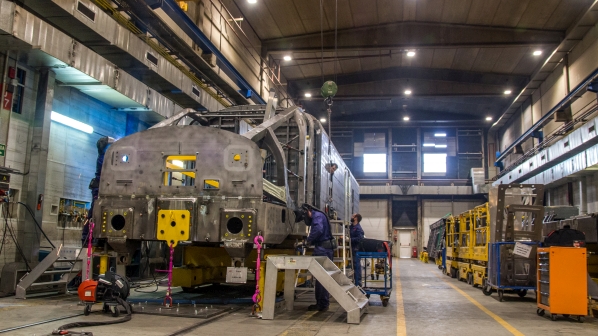Talgo Group president, Mr Carlos de Palacio Oriol, told IRJ in Madrid that the company’s current manufacturing facilities in Las Matas, Madrid, and Rivabellosa, Alava, are at capacity, necessitating the construction of a third plant.
The plans, which also include the construction of an “innovation hub” in Chesterfield in the East Midlands, have been drawn up over the past two years and de Palacio Oriol says they will be able to begin manufacturing 18 months after winning a contract.
“We need a critical mass to justify such a movement,” he says. “If we get an order we hit the button and start the next day.”
Sir Simon Hughes, who is acting as strategic UK adviser to Talgo, also confirmed the launch would proceed irrespective of what happens with Brexit.
As well as the HS2 contract, which Talgo has been shortlisted for along with Hitachi-Bombardier, Alstom, Siemens, and CAF, Talgo is also targeting contracts in the developing markets in South America, Africa and Australia which it would export from the Longannet factory. Production would initially be supported by the factories in Spain but Talgo hopes it would become self-sufficient within a few months.
The winner of the £2.75bn HS2 contract, which is expected to be announced later this year, will supply a minimum of 54 360km/h trains for operation on Phase 1 of Britain’s HS2 high-speed line linking London and Birmingham. Talgo has put forward a variation of its Avril high-speed model for the contract.

